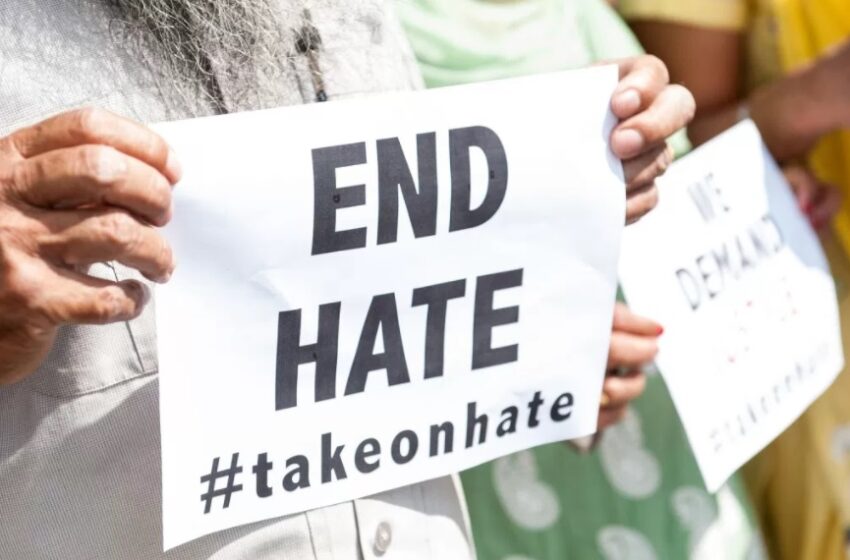Half of AAPIs experienced race-based hate in 2023: Survey

Half (49%) of Asian American and Pacific Islanders (AAPIs) in the US have experienced some form of race-based hate in 2023, according to a new survey released by Stop AAPI Hate for AAPI Heritage Month.
But in the face of widespread racism and discrimination, AAPIs are: motivated to fight racism, proud of their ethnic identities, and participating in resistance, according to the national survey conducted with NORC at the University of Chicago.
The survey providing insights into how resilience, cultural celebration, solidarity, and resistance show up in AAPI communities was released May 1 as part of ‘Spread AAPI Love,’ a national multimedia storytelling campaign.
Additionally, the survey examined the impact these positive factors have on motivating AAPIs to take action against racism and discrimination.
Key findings:
70% of AAPIs are motivated to get involved in efforts to advance racial justice and equity for their communities.
A large majority of AAPIs (93%) are proud of their ethnic or cultural background and feel connected to their AAPI heritage (81%).
Three out of four AAPIs (74%) participated in activities to reduce or resist racism in 2023.
90% of AAPIs believe it is important for AAPI communities to work together with other racially marginalized communities to end racial discrimination.
When it comes to taking action to advance racial justice, AAPIs are more motivated by uplifting aspirations, actions, and feelings than they are by experiences with hate. Top motivators include:
Hope for a better future for younger generations (81%);
Seeing the collective efforts of AAPIs to combat racism (72%); and
Feeling strongly connected to their ethnic or racial identity (69%).
84% of AAPIs are optimistic that AAPI communities have the power to end racial discrimination by taking political action and through collective action.
“Outrage is a powerful motivator for taking action against racism and discrimination, but our research shows that so is love — love for our heritage, culture, ethnic identity, and communities,” said Stephanie Chan, Director of Data and Research at Stop AAPI Hate.
“Stop AAPI Hate’s new survey data emphasizes the need to foster more positive motivators for taking action against race-based hate, including promoting messages and acts that inspire hope, lift up our collective action, and foster strong connections to our heritage — and that’s exactly what we hope to achieve through efforts like our Spread AAPI Love campaign.”
The ‘Spread AAPI Love’ campaign will amplify the voices and perspectives of AAPIs through uplifting, personal stories from community members, according to the release.
“After nearly four years of emphasis on the rise of racism and hate against our communities beginning at the onset of the COVID-19 pandemic, Asian Americans and Pacific Islanders want to center more affirmative narratives about who we are and the power we have to create change,” said Manjusha Kulkarni, Co-Founder of Stop AAPI Hate and Executive Director of AAPI Equity Alliance.
“Spread AAPI Love aims to illustrate that Asians and Pacific Islanders are not simply victims of hate — we are a richly diverse group of people who hold immense joy, power, and cultural pride. By sourcing and sharing uplifting stories from our communities, we can not only foster collective healing from racial trauma but also inspire AAPIs to take action to advance racial justice.”
The campaign will feature community-sourced stories centered on four core themes: resilience, celebration, solidarity, and resistance. AAPIs can submit their own stories in a variety of mediums — video, audio, art, photography, and written — on the campaign microsite spreadaapilove.org, where they will be showcased publicly.
Select stories will also be featured:
In an official anthem video, featuring four powerful stories from AAPI community members, including Tiana Liufau, choreographer for the animated film Moana;
On Stop AAPI Hate’s social media channels (TikTok, Instagram, Facebook, LinkedIn, X, YouTube) as well as on various AAPI influencers’/content creators’ channels;
At various speaking engagements and in-person events in Seattle, New York City, and Washington DC; and
Via nationwide digital advertising and out-of-home transit ads in the San Francisco Bay Area.

